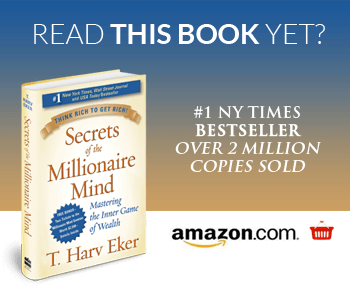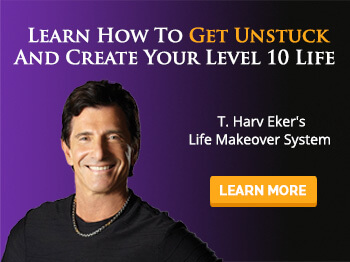In normal conversations when we use the word “balance,” we tend to think of balance being an even distribution. And in many cases, this is correct.
But when it comes to your life or your business or career, this couldn’t be farther from the truth.
I want you to say this phrase out loud: “Balance means equal attention given to both or to all…” Then I want you to say it again and REMOVE the word “equal” because having equal attention in ALL things cannot and DOES NOT work in anyone’s life… including yours.
So if balance doesn’t work in equal proportions, then how does it work?
Well, last week in our lesson we talked a lot about the 80/20 rule or the Pareto principle. It says 20% of your activities will create 80% of your results. Which means that 80% of what you do is wasted as far as the results you want are concerned. Watch this video to learn more about it.
So what do you do?
The first thing you must do is prioritize. You have to say, “What do I do that is productive, makes money and gives me joy?” The reality is most of our time is usually spent on frivolous, crappy stuff that doesn’t create real results.
Sometimes if I’m not careful, I can be on my emails for four hours because I’m curious and think, “What does this financial letter say? What does this other guy say? What’s all of that about? What does he want over here?” I then catch myself and notice four hours have gone by when I could have finished the emails I needed to do in 20 minutes.
That’s life. You have to discipline yourself to be productive.
So how do you do this effectively? I want you to think about dividing a piece of paper into two sides, a left side and a right side.
Most of our students are involved in business, work, career, or something where money or business is involved, so we’re going to put money/business on the left-hand side of the paper. On the right side, we’re going to put the rest of life. You might be thinking that that’s unbalanced, but it’s not.
Let’s take the money and business side. I’m going to give you a big secret right now that not too many people know. I call it “The Big Kahuna.” The big kahuna means the “big thing.”
“The Big Kahuna” Creates Greatness In Your Life
In your money and your business, what is the one big thing you can do that will have the most impactful effect and will create the biggest results?
It’s the ONE thing — not the ten things, five things, four, three or two things.
What is the ONE thing that you could do that would have the biggest effect on your money and your business or your career?
For my situation, since I’ve been fortunate enough to do enormously well on my book, Secrets of the Millionaire Mind, that book brought me a lot of clients and business from all over the world. The book has sold over 2 million copies now in 43 languages.
So “The Big Kahuna” for me that would have the greatest impact would be writing another best-selling book, and that would be huge compared to everything else that I do on a day-to-day basis.
How much time would I spend on that?
50% percent of all of my business time would go into my Big Kahuna.
This may come as a shock to some of you reading this right now. But let me ask you this…
Do you want greatness or do you want mediocrity?
Do you want wealth or do you want to earn a living? If you want wealth, you have to work on the Big Kahuna and make it happen.
That’s what will create greatness in your life.
For the right side of the paper (the rest of your life), how long in a relationship does it take to have dinner with your family and have a nice sit-down dinner? It takes an hour a day. How long does it take to read a book to your kids and spend quality time with them? It can take an hour or less. How long does it take to work out? It takes half of an hour to an hour. You DO have time for everything else and that’s the bottom line.
Okay what’s an example of a big kahuna for someone else who is in business?
I can tell you right now that 99% of every business problem lies in marketing and sales.
If you are a great marketer, chances are you’ll make great money. If you’re a lousy marketer, chances are you’ll make lousy money.
I can tell you with absolute certainty that the most essential skill I have is the skill of marketing, and 99% of the time, that’s my big kahuna.
In my experience most people who are underachieving are not spending enough time on marketing. The reason is because they either don’t like it (very common) or they don’t know exactly what to do to make it work.
Which is why we created our web class, The 500 Million Dollar Secret, to teach you exactly how to become a master at marketing…
… To show you what common mistakes most people make and how you can avoid them.
… And to give you an opportunity to know exactly what I do in my own business to predict success.
Click here to reserve your seat.
If marketing is not your big kahuna, then what is? How do you divide up your time to create success in your life and your business or career? Leave a comment below and share your story with us!
For Your Freedom,

When it comes to getting rich, most people pour their time, energy, and money into the wrong areas.
Instead of focusing on the actions that are most likely to help them become wealthy, they end up unfortunately wasting their time and energy – and chances are, if you haven’t been as successful as you want in life yet, you’ve done this too.
Maybe you’ve heard of the 80/20 rule before – it’s the principle that states that 80% of your success is determined by only 20% of your actions. If you think about most areas of your life, this is probably true – some things are just more impactful than others.
Watch the video below — a sneak peek of my free webinar — to learn:
- 00:20 — How I used to believe all parts of my business were equal and that each part deserved equal amounts of time, money, and effort.
- 00:41 — Why that belief left me constantly broke and struggling to make ends meet.
- 00:53 — How there are only three major parts to any business and what they are.
- 01:18 — The real secret to business success and how it will have the single biggest impact on your financial life, and…
- 02:17 — Why you should focus most of your business time, energy, money and learning (80%) in this one particular area.
What you will discover in the video may sound counterintuitive. It’s not common knowledge or common sense — but it does work in the real world. I’ve seen it time and time again with my students.
And if you liked this video, join us for my free training, The 500 Million Dollar Secret, and you’ll learn how to approach this one area of business in a whole new way… and reach the success you’ve always dreamed of.
Most people don't focus on this area of business and that’s why most people are working too hard AND earning too little. You may be one of them.
That can end quickly if you join Harv on his free web class where you’ll learn several reasons why this may be happening to you and how to turn it around so…
… You can actually work less but earn more!
Click here to register for the class and select a date and time that works best for you. See you there!
Where do you put the majority of your focus in your business or career? Leave a comment below.
For Your Freedom,

In my seminars I ask my audience, “How many of you don't like this word?” The word on the flip chart is “Sell.”
A lot of people put their hands up in agreement. They don't like the word “Sell.” And I say, “My hand is up too. I don't like the word ‘Sell' either.”
It has a really gross connotation to it, doesn't it? There's nothing wrong with it, but its got a bad rap.
So here's a trick…
As I mention in my video below, don't ever use the word “Sell.” Actually, just cross it out and instead use “Help.” Watch the video to learn why you should be using that word instead.
Don't Use The Word “Sell.” Use “Help.”
I don't want you to sell anything. I just want you to help people.
How do you make money?
You make money by solving a problem for someone. That's the only reason people give you money. They don't give you money because you look good.
So do something that helps more people. Stick within your niche, but do something that helps people and tell them how you help them. That's called your message.
“My product really helps people.” What people do you help? Tell them in a nice way how you help them.
For example… Don't say, “Hey, I have a great hair loss program. I have a product that grows hair.”
That's ok, but is that really attractive? Is that your message? People will say, “That's not bad.”
Here's an example…
“Are you sick and tired of looking at your bald, ugly head in the mirror? Do you feel terrible about yourself? Do you remember the days when you used to have a full head of hair and people used to walk up to you and say, ‘Wow, I love your hair'?
“Every single day since then you've watched your hairline go back. Here you are trying to comb your three ugly strands of hair across your entire head, and you know it doesn't cover. You know it sucks.
“How do you feel when people look at you and the first thing you think they're looking at is your lack of hair? How does that make you feel about yourself? Herculean? No. Hercules had hair. You don't.
“Would you like to grow it back and feel good about yourself again? Would you like to be attractive? Would you like to feel good in your relationships and your business?
“I have a product for you!”
There's a little difference, right?
That's “selling” something. When you know what problem you're solving for whom, you don't have to sell anything.
You're making an offer to people who are looking for your solution. Now you're in the position of helping, not needing to sell.
Watch my free webinar where I explain a step-by-step model to sell anything at any time and make your business sales predictable.
Let's Be Clear: Your Goal Is Sales…
And there's nothing wrong with that.
You are making an offer for money because that's what you're in this for. Those sales are people you're trying to help.
Just don't think about it as selling. Whatever you want to call it, if you're not doing it, you're broke, or setting yourself up to be broke one day, regardless of your field.
Your business will always have a sales/marketing department. Call it whatever you need to call it to make the unpleasantry behind our typical perceptions about selling go down easier.
Whatever you come up with, it's all about how you frame it, not the fact that you are indeed selling.
If you liked this lesson, then you'll love my free web class, The 500 Million Dollar Secret, where I'll teach you more of these strategies and principles that will show you exactly how to write your own ticket to success. It's completely free to attend.
Click here to register and select a date and time that works best for you. See you there!

What do you think? What kind of language could you use to frame selling without “selling”? If the idea's good, keep it and use it! If you're up for some creative brainstorming with fellow learners, let us hear from you in the comments below!
For Your Freedom,

“If I could teach my children only one thing, it would be the skill of marketing. For with that skill, they could be successful at anything they chose for the rest of their lives.”
That’s a quote from financial advisor Howard Ruff. It speaks for itself — if you can market yourself, you will always have potential buyers for whatever it is you have to offer.
This is what scares so many people, though. They think you have to know everything about marketing in order to be good at it.
I'm gonna let you in on a little secret:
I don’t know everything about marketing, not by a long-shot! I don’t have time to know everything, nor do I need to, nor do you!
However, there are some critical secrets to great marketing and that includes the four most important words in marketing.
The Four Most Important Words In Marketing
1. PRESENTING
You’ve got to let people know what you have — your Unique Selling Proposition.
Without marketing, nobody knows that you or your product exists. If they don’t know about it, they can’t buy it. And if they don’t know why they might want it, they certainly won’t.
2. POTENTIAL
Make sure there is a real possibility of a transaction happening.
If they can’t or won’t buy it, you make no money.
3. EAGER
Create desire for your product or service.
At its most basic, marketing is presenting products or services to potential consumers to make them eager to buy from you. It’s about the psychology of putting yourself in front of others effectively and creatively.
4. BUY
If people don’t buy your product, all this is for naught.
Sometimes it helps to go back to the basics, especially core basics. This has to be engrained in every cell in our bodies
Marketing Equals Money
Marketing equals money, and this principle works for all businesses!
If you are a great marketer, chances are you will make great money. And if you are a poor marketer, chances are you will struggle financially.
The good news is marketing is a learnable skill and there aren't that many different strategies and principles that you need to know to become an expert at marketing. You just need to know the right elements that will have the biggest impact on your business and your bottom line.
Which is why I created my free web class, The 500 Million Dollar Secret, to give you the key elements I used to get rich.
Click here to register for the class and select a date and time that works best for you. See you there!
How great that you can live your mission and not ever worry about how you’re going to make money! What does or will that look like for you? Share your thoughts with me in the comments below!
For Your Freedom,

“Can you hear me now? Good!”
I’m a marketing fanatic as many of you know, so I try to appreciate great ideas communicated brilliantly when I see it. Verizon’s cell phone television ad campaign articulated and took advantage of a simple but powerful truth— with other cell phone carriers, lots of people were experiencing the frustration of dropped calls in the middle of important conversations.
You’ll never have to worry about that with us, Verizon basically said, with commercial after commercial of the same Verizon field test guy in the most remote areas of the country still being heard, still good.
The number of Verizon subscribers jumped from 32.2 million at the start of that campaign in January 2002 to 43.8 million in two years. They also poured billions into their network infrastructure; continually investing in what they said they would deliver on—fewer dropped calls anywhere.
I’m not a Verizon spokesman or advocate, I just use the example to illustrate the power of a simple message communicated to the tune of more customers, and more money. The money is in the message. Marketing and promotion is how you get customers to your business, and customers are how you get more money.
This is exactly the problem most businesses have, though—communicating clearly and concisely what they do and how it benefits their potential customers. It’s one thing for you to know what you do, who you help and how they benefit, but it’s quite another thing for other people to know the same thing.
One of the most essential skills you can have is the ability to articulate what you do in a powerful and concise way. Clarity leads to power, for both you and your customers. It empowers them to understand exactly what you can do for them and why they should buy from you. The reason most people fail in business is that they have a very poor message.
Your message has to cut through like a knife to the core. You have to be very selective and specific about what you say. You might have lots of different things to offer, but you can’t put them all in a 30-second sound bite. Don’t try to be all things to all people. Keep it simple. Less is more. You want to leave people saying, “That sounds interesting.”
What’s your “thumbprint”? What’s unique about you? Why should someone do business with you versus the person next door?
If you don’t have this, you are chopping your income in half. As soon as you have a strong sound bite, and deliver on your promise, you can double your income.
The only way you'll ever know what works is to try something out and see if it works. You always test first, and then you sprint out of the gate when you have a winning proposition.
How about you? Have you experienced a difference in success when you changed your persona—your “calling card” so to speak—as you sold yourself or a product? What was it that specifically made a difference? Was it how you perceived yourself or how others perceived you? Let us know in the comments below!
To Your Success,

When people are at your website, you’ve gotten through the creation of interest, credibility, and rapport. They believe in you. They’re ready to order from you, trusting enough to give up serious information. You’re not some guy in boxer shorts in some basement stealing credit cards. They don’t know who you are. You’re a webpage, but you’ve satisfied that most important question to the casual web surfer—what’s in it for me?
Now you have to convince them to buy something. Make an incredible, compelling offer, and then get them to fill out an order form or checkout or whatever. You have to ease understandable objections but having a secured site (Whatever the costs do it! You don’t want to be the site that was hacked or broken into for credit card info. It’s hard to recoup from that if you’re not one of the giants).
Once they’re convinced, you want them to fill out the whole order form that’s user-friendly, simple, yet detailed. What did they order? Is it a product that is used consistently? If so, about when would you expect this customer to be most open to buying this product again, and maybe something else, something that costs even more?
Here’s where the backend marketing starts. Great customer service and reliable producers and movers are musts, but your marketing costs are absolutely zero in terms of your ability to follow with hundreds, thousands, hundreds of thousands of people (depending on the product/service). By having a system in place that captures key information, that database becomes your genie for when you are most likely to make your next sales. You can literally predict about how much money you’ll make at intervals you determine.
Let’s say you have a repetitive product like vitamins. You sell a bottle of Vitamin C to one customer that amounts to a 45-day supply. Guess what they’re going to get 30 days later? On your order form you’ve captured name, email, product, date, all the key data you can manipulate any way you like to automatically kick a personalized email to that customer when they’re most likely to by that again. Throw in a 10 percent discount. Make them an offer hard to refuse.
Now think about the up-sell, and the limitless people you can reach on the web. And what did that cost? Zero. Nothing. Nada. Zilch. No time at all. It’s done automatically. If 10,000 people order today, 10,000 people are going to get an email 30 days from now to remind them of that.
Think you’re going to get any extra business from that? And even if you don’t, so what? It’s free! It didn’t cost anything to do it. If it didn’t work, just fix the content of the email, go back and do it again. It’s so easy and simple, the power of Net. That’s backend marketing.
Once you have that email address, it’s free to market to them forever. Backend marketing is the key to online business. The old way of backend marketing meant sales aggressive sales calls or mailing catalogues, both expensive. By email, you can reach as many people as you can bear and do it free all the time.
And this doesn’t just apply to strictly online businesses. Next month we’ll look at how a few extra seconds of effort with your in-store customers means the beginnings of a database and more sales!
Do a little digging and you find out it's relatively easier to make that million-dollar mission-accomplished by finding an online niche–preferably one that actually excites you at your core–and finding out what that niche want.
Too many people do the opposite–they focus on the hottest product or service and try to blast that out to as many people as possible. There's an inherent risk in being left holding a bag of goodies nobody wants. Only that's one expensive bag!
Just like the old-fashioned way, you're not buying tons of inventory and then hoping that you sell it. You get the orders and the money first, then you deliver. Online, you learn your market's want or gap in fulfillment, and then you deliver a product or service that market wants. Social media is a great way to learn more about your market (and pull in very qualified leads!) once you've established what your niche will be and build your website around it.
As usual, proceed with caution. Not everything can be sold online. Not every want that might be clear and evident can be fulfilled just by throwing up a website.
The late Cory Rudl, one of the pioneers of internet marketing and online businesses, used this analogy. If you had a cure for the common cold, in an easy-to-digest pill form, billionaire might not even apply to what you'd be worth. That product would be everywhere–Seven Eleven, every grocery store, corner store, market, you name it.
Now try selling that online. At minimum it takes at least three to four days for the product to get to you. You're already over your cold by then. It's a failure from day one. Don't start with a product. Start with a market, and then find a product for that market that that market wants.
People spend money on things that they want. It's an emotional investment. A necessity can be satisfied by the most convenient and cheapest product or service. People are willing to pay more money for wants, but they're usually very price-conscious with things they have to get or do.
And no different than traditional businesses, there's the backend after that want is fulfilled. It's the product or service you sell after they've bought the first product from you. That's where all the money is.
Been to the movies lately? If not, no one can blame you as expensive as it can be to take your family out for movie night. But think about whoever is making all that money at the concession stand alone.
You go up to the counter for a small popcorn (because you've already tucked away all the candy you'll need in your purse or bag), but you leave with a large bucket plus a soda. Why? "Well, you can get this for only 40 cents more … Or this meal-deal that saves you this much money."
Even fast-food workers are routinely taught to up-sell. It's no different online–the point is your customers come in for one thing and walk away with more–because you gave them something they wanted from the beginning.
Once you have the customer's name online, it costs you nothing to sell to them again and again and again. You can make 100% more net income than you are right now by back-end selling.
To know the importance of having a website for your business is one thing. Knowing the purpose behind having a Web presence is a whole other thing.
If your business is already up and running, you'll have to cater your strategies to what you already have in place, particularly in terms of your pre-existing customer base. That means getting them to fill out cards in your physical business, or otherwise enticing them to your website with special offers. Then follow-up emails. We're still talking basic marketing and backend selling–making money on those who are the easiest to sell to–those you've sold to before.
But if you're still unsure of what kind of business you'd like to create, take a good, long look at creating an online business.
What works in your favor is that the easiest way to make money online is to focus on a specific market, find a product that they want, and give it to them. Searching for your best prospects online isn't that much different than offline.
How do you do this? The same way you look for anything else online: surf. Just type it in–for example, maybe you have a passion for scuba diving that you'd like to turn into a business. You find all the news groups, forums, and websites regarding scuba diving. Is there anything that they're talking about a lot? Any patterns where something is wanted but not easy to find?
That's how you find your target market. It may take you a day, a week, a month, maybe longer. It depends on what your market is and what you're trying to find, but whatever the niche, there's a large enough market that's relatively easy to get to. You know where they are, and after some research you'll know that they want something specifically. All the gamers are hanging out in one market. All the sports nuts are hanging out in one market. All the people that are interested in holistic medicine are hanging out in one market. All the doctors are hanging out in one market. It's easier to get people than you might think.
Try getting those people through the local newspaper. If 20,000 people view your ad (theoretically), you'd be doing great to get 10 of them to show interest. Online, you can go right to where all of your target market hangs out. Your target market is sitting right in front of you.
There are tons of people who know enough about the money-making potential of the Web and ask, "So what do I sell online? What's going to be a hot seller?" It's the most common and most fatal mistake.
You never decide on the product. You find an easy, targetable market, find out what they want, and you give it to them. It's the easiest method in the world. You have an instantaneously successful business. It is a no-brainer. It doesn't take any smarts to figure that out.
Anybody out there discovered the power of doing business online recently (I know you're there)? What did you find frustrating, or powerful, or even profound? Did you incorporate a Web presence into an existing business? What have been your greatest learnings? We want to hear from you!!!
https://bit.ly/UltimateInternetBootcamp
Your business is you. It's you creating something that wasn't there before; with material results from your intentions, your energy, your essence, whatever it may happen to be at that time. The science of growing it simply means having prepared leadership, development, producers, and administration. As the process evolves, so do your systems for solving frustrations and focusing on those critical factors that matter most.
This is your rich-making vehicle. Like any car, you've got a gas gauge, a speedometer, oil gauge–all the key things you need to know quickly and conveniently if this thing is running properly. You need the same things in your business.
You need the ability to track what's important. There's what is quantifiable and easy to count–like sales–but there are also subjective things where opinions are measured, when the ‘qualifiable' becomes quantifiable.
One issue that's gained tons of traction over the last couple of years is going green–especially in businesses–from "cloud" computing to energy consumption's impact on the bottom line.
Some people couldn't care less about the plight of the pelicans in an endangered eco-system (a shame, for sure), but when you can quantify how switching over to energy-efficient equipment can save thousands of dollars, politics goes out the window. Saving the planet is on the same track as the bottom-line.
Also consider, though, the marketing appeal of being able to sincerely tell your market you support green initiatives. Again, the subjective can become countable in response rates.
Put a scale in and it. Customer satisfaction; employee satisfaction–you measure benchmarks, time frames, the ranges you'd like to be in, or what high/low thresholds would signify danger-zones. They sound complicated, but they're really not.
How many sales calls and closes per hour would you like to see? You look at what your sales are per month and compare. Too low? Too high (maybe there's something else not being considered if it's too good to be true)?
You want the salesperson that follows a script, makes the calls and closes the ratio that they should be closing. That can be copied, duplicated, and most importantly, tracked. If the oil pressure in your vehicle is too high, you've got a problem. If it's too low, you've also got a problem. You want to be in between, yes? What are your operating ranges for your critical success factors?
It might be that you're willing to spend a certain amount of money per employee depending on their role in your business' structure. If you're paying your marketing guy $30,000 more than you really intended, there isn't going to be much speculation on why your profits aren't where you want them to be. Like getting a speeding ticket, you had this gauge that you weren't paying attention to and you exceeded the operating range.
There are things you can count on and physically look at; things you can measure; and real accurate data that you can track–not guess. They're documented. It could be in a manual you pass out to all employees, or one that you've got linked up online.
It takes consistency, predictability, and tracking–systems that can be operated by someone with a base-line level of skill. When you can duplicate that, you're on track to financial freedom.
When we get frustrated by our conditions, we inevitably end up becoming frustrated with ourselves. It can take us over and we tend to run with it. It can creep into every aspect of our lives, from how we relate to the people around us, to how it will impact our business.
If the frustration builds for too long, pretty soon we might forget altogether what the hell we were frustrated at in the first place, yes?
This happens in business all the time, especially when, in the early stages of the business, cash flow can fluctuate maddeningly, which then leads to all other kinds of frustrations from payroll to profits.
There’s an energy attached to frustration that sucks the life out of your business, and if you’re not dealing with this as a business owner, it’s only going to go downhill from there.
Moving back away from whatever the problem is, step one toward a solution is simply being able to classify your frustrations. Is it with your team? Your results? A process that doesn’t seem to flow efficiently?
Some typical early-stage business frustrations include time (there never seems to be enough of it), feeling like you’re too bogged down with menial detail-work instead of bigger-picture tasks, or relying on people to get things done that don’t follow through. Just to name a few.
This is where the importance of systemizing your business processes plays a huge role. First you name your frustration, and then you develop the system to address it.
So if you’re having problems with freeing up your time yet ensuring that essential tasks still get done, then the real problem is the absence of a system that will hire the right people rather than you doing it all yourself. That way, not only is your time freed up, but the right people will also help micro-manage the way processes continue to develop and flow.
The good news is that frustrations within your business are fairly easy to identify and deal with, though they may take time. Inner frustrations, on the other hand, not only take more time and energy to deal with, but may also be harder to identify in the first place. You could be mad at yourself because you’ve done something poorly for so long, and you get frustrated about not seeming able to turn the corner. Or worse, you externalize that frustration toward everybody else—the customers, the suppliers, the vendors, the client; everybody but yourself.
We know the power of blueprints, so we won’t address that here.
When it comes to outer frustrations that we can identify, though, the questions are much simpler. What’s my frustration? What’s the gap in the system? What system is missing altogether?
If your frustrations begin with ‘I’, it’s about you. It’s inner directed. If it’s about ‘them’ or ‘those people’ or ‘those lousy clients’ or ‘those suppliers’ or ‘that lousy machinery’ or ‘that way' of doing something, it can then be addressed systematically and objectively.
What do you think? Have you experienced similar or even different kinds of frustrations, and how did you address them? Did systemizing play a role? The Millionaire Mind Community wants to hear from you!
Register for a Millionaire Mind Intensive near you HERE





